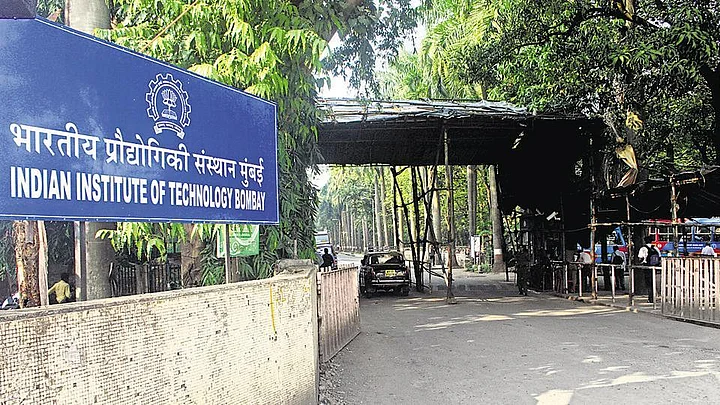The Indian Institute of Technology (IIT) Bombay on Saturday, 29 July allegedly put up across the campus new "anti-discrimination guidelines" which stated that it is inappropriate to ask other students about their JEE ranks and GATE scores and that violations can lead to "severe punishment."
The guidelines, a copy of which was accessed by The Quint, come nearly six months after the death by suicide of first-year B.Tech student Darshan Solanki, who belonged to the Dalit community. Darshan's family had linked caste discrimination on campus to his death.
A PhD student, who is also a member of IIT-Bombay's student group Ambedkar Periyar Phule Study Circle (APPSC), told The Quint that "the new guidelines are a good thing but in a limited sense as it does not talk about the operationality of the SC/ST Cell and its role in case a student faces caste-based discrimination on campus."
But First, What Do the Guidelines State?
In a copy of the new guidelines shared with The Quint by a student, the premier institute stated that it aims to have "high inclusivity" on campus and wants "students to bond with each other irrespective of factors such as caste, religion, or socio-economic status."
In this regard, IIT Bombay has put up six-point guidelines to ensure that students do not face any discrimination from the faculty, staff or other students on campus. The guidelines state:
It is inappropriate to ask a student about their birth/admission category as it could lead to "conscious or sub-conscious bias."
It is inappropriate for students to ask other students about their JEE (Advanced) ranks or GATE scores or any other information that may reveal their caste.
The institute has explained this saying: "While the student asking the question may feel it is innocent, and it may be driven purely by curiosity, asking such a question can have an adverse impact on the other student. It may appear like an attempt to find the caste and may set the stage for discrimination."
It is urged that the introduction and interaction of students should happen through commonalities like department, sports, music, movies, education, hobbies, etc.
It is prohibited to exchange or forward any messages or jokes that:
are abusive, hateful, casteist, sexist
exhibit bigotry based on religion and sexual orientation
can be construed as harassment or bullying
these include posts on social media, WhatsApp, email and in person
The guidelines also stated:
Violations can lead to severe punishment
Politeness and sensitivity towards others' feelings is expected from all
'New Rules Lip Service But Acknowledge Something Wrong in Darshan's Case': Student
"This is the first time such guidelines have been put up in the public domain. This indicates acceptance that something was wrong in Darshan's case," the PhD student told The Quint, on condition of anonymity.
He said that earlier a pamphlet regarding the same was distributed to the freshers as a part of their orientation kit. But now, the purview of the guidelines has been extended to all students as well as faculty members, he added.
At a press conference in Mumbai on 11 May, Darshan Solanki's sister Janvi had said that she had stumbled upon Darshan’s Instagram account and had come across a chat where a fellow student was asking Darshan his IIT-JEE rank.
“Darshan told him his JEE rank and went on to say in the chat that since he now knows his category, he will probably also not like Darshan anymore. Darshan told the student that he mustn’t think that reserved category students get undue advantage,” Janvi had said then.
'How Will SC/ST Cell Deal With Complaints In Absence of a Mandate?'
Even as the elite institute has now circulated new guidelines against caste discrimination, students have expressed concern on how IIT Bombay proposes to deal with complaints of violations of these guidelines, especially with the mandate of the the Scheduled Caste/Scheduled Tribe (SC/ST) Cell still pending approval.
The SC/ST Cell was established at IIT Bombay in 2018 to address academic and non-academic issues received from students belonging to the SC/ST communities. It comprises primarily of faculty members and has three student representatives too.
"We can't be entirely happy that IIT is changing," the PhD student lamented as he alleged that the SC/ST Cell of the elite institute still does not have a Constitution or a mandate to abide by.
He said that the APPSC student collective had helped draft a mandate which clearly defined how the SC/ST Cell would operate, how grievances would be addressed, the timeline for redressal, who would comprise the committee in case one needs to be set up -- 50 percent members should belong to SC/ST communities -- and a mandatory course in caste discrimination.
But the draft has been in limbo and waiting approval from the Director and the Deputy Director for almost two years after it was allegedly submitted to the SC/ST Cell.
"What will they do when they get a complaint? What will they base their action on in the absence of a mandate? We need something like anti-ragging guidelines or Vishakha guidelines to ensure no student suffers caste discrimination on campus."PhD Student at IIT Bombay (requesting anonymity)
The Quint reached out to the Public Relations Office (PRO) of IIT Bombay for a response on the same and is awaiting their response.
